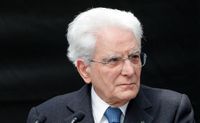Sergio Mattarella, the President of the Republic of Italy, was admitted to the Santo Spirito hospital in Rome on the evening of April 15, 2025, for a planned procedure to implant a pacemaker. This intervention was not a cause for concern, as confirmed by sources at the Quirinale, the official residence of the President. In fact, Mattarella, who is 83 years old, conducted his normal duties earlier that day, demonstrating that his health was stable prior to the operation.
On the morning of April 15, Mattarella promulgated the "Morandi law," which recognizes benefits for victims of infrastructure collapses, such as those involving roads and highways. During this process, he pointed out certain aspects of the law that he felt were not aligned with constitutional principles, signaling his commitment to upholding the integrity of Italian law.
Later in the afternoon, before his hospitalization, Mattarella met with Montenegro's Prime Minister Milojko Spajić at the Quirinale, an engagement that underscored his active role in international relations despite his age. The meeting also included the presence of Edmondo Cirielli, the Vice Minister of Foreign Affairs and International Cooperation, indicating the importance of the discussions that took place.
As news of his hospitalization emerged, messages of support quickly flooded in from the political sphere. Ignazio La Russa, the President of the Senate, took to social media to express his encouragement, writing, "Forza Presidente, torna presto. Ti aspettiamo," which translates to "Go for it, President, come back soon. We are waiting for you." This sentiment reflects the respect and affection that many in Italy hold for Mattarella, who has served as a unifying figure during his presidency.
According to medical sources from the Santo Spirito hospital, the procedure to implant the pacemaker was successful, and Mattarella is currently in good condition. He is being treated in the cardiology ward under the care of Professor Roberto Ricci, a leading cardiologist. The operation was deemed necessary due to a cardiac issue that had been monitored but was not considered urgent.
Despite the seriousness of the procedure, officials at the Quirinale emphasized that there was no immediate cause for alarm. They reiterated that Mattarella had been working normally right up until his admission to the hospital, which included his involvement in significant legislative activities.
The Morandi law, which was a key focus of Mattarella's day, aims to provide financial compensation to those affected by collapses of national infrastructure. However, during the promulgation of this law, Mattarella raised concerns about potential discrimination between children of married couples and those from civil unions, illustrating his commitment to equality and fairness in legislative matters.
Mattarella's presidency has been marked by a steady hand during turbulent times, and his recent health issues have prompted discussions about the future of leadership in Italy. As Italy navigates challenges ranging from economic recovery to social issues, the continuity of leadership is seen as crucial. Mattarella, who has served as president since 2015, is viewed as a stabilizing force in a politically diverse landscape.
As the nation awaits further updates on his health, the support from both political allies and the general public reflects a deep-seated respect for his service and contributions. Many Italians are hopeful for a swift recovery, as they recognize the importance of his role in guiding the country through its current challenges.
In summary, while the news of President Mattarella's hospitalization may initially raise concerns, the circumstances surrounding his procedure are reassuring. The planned nature of the intervention and his active engagement in state affairs earlier in the day signal that he remains a vital part of Italy's political landscape. As updates are awaited, the Italian people seem united in their support for their president, hoping for his quick return to health and continued service.






